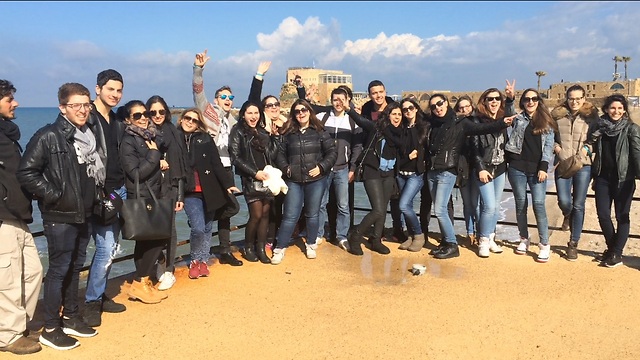Op-ed: Young Jewish men and women scattered across the globe are an inseparable part of the Jewish people’s beating heart, and it is our duty (and right) not only to embrace them, but to let them to get to know the State of Israel with all its complexities, challenges and successes.
The days of Tishrei – the first month in the Hebrew calendar – are an appropriate time for an internal and external examination reflecting the physical and spiritual state of each and every one of us, and of all of us a Jewish people – both in Israel and in the Diaspora.
Judaism is a civilization which goes back thousands of years, and its sons and daughters have left behind ideas and values without which it would be almost impossible to imagine modern society. It is a civilization that has experienced glory days, but also a lot of distress and times of need.
Four exiles are engraved in the history of the Jewish people, and we must not forget them: The Egyptian exile, the Assyrian exile, the Babylonian exile and the Roman exile – a 2,000-year-old exile which began with the destruction of the Second Temple, and ended, according to the prevailing opinion, upon the State of Israel’s establishment in 1948.
Sixty-seven years later, the picture emerging before us is also charged and challenging. The Israeli discourse is often characterized by unstoppable internal rifts, and the Jewish world in general is still required to deal with issues like assimilation, anti-Semitism and de-legitimization of the Sta Israel as a Jewish and democratic state within the family of nations.

Nonetheless, the State of Israel’s 67 years of existence are definitely a source of inspiration and a sense of satisfaction, and as a people we must also take pride in the many achievements recorded by this young state in such a short period of time.
The Zionist vision and the values which characterized the people of Israel throughout the generations continue to materialize today, and their different appearances are apparent in every area of action in Israel and are contributing to the world as well: Social welfare organizations, extensive humanitarian activity, young people’s settlement in the different peripheries, medicine, science, agriculture and ecological work, cultural and artistic work, high-tech projects and many other areas.
With all the challenges at our doorstep, the Israel definitely has a remarkable story – and a significant source of pride.
A crucial bridge
For hundreds of thousands of young Jews from around the world, the Taglit-Birthright project is the first meeting with Israel, and the project’s vision is that its participants will experience the story of historical and modern Israel as one, with all its challenges and achievements.
Nearly 30 percent of all the project’s participants have returned to Israel several years after the tour, and studies show that those who participated in the tour are 50 percent more likely to marry Jewish partners compared to those who did not participate.
Young Jewish men and women scattered all across the globe are an inseparable part of the Jewish people’s beating heart, and it is our duty (and right) not only to embrace them, but to allow them to get to know Israel in a mature, responsible and deep manner – with all its complexities, challenges and successes.
Our sons and daughters in the diaspora serve as a real, crucial bridge for the state’s strength, reinforced by the economic, political and PR lobby, and the international discourse in general.
The contribution of hundreds of thousands of Taglit graduates to the nature of the discourse surrounding Israel, to strengthening its image around the world and to creating a living bridge between them and the young generation in Israel is succeeding in fundamentally – and positively – changing processes which until recently were considered “historical determinism.”
Affecting an entire generation
In the 15 years of its activity, and with more than half a million graduates who have experienced Israel through it, the project proves time and again that the investment and influence on the individual participant is affecting an entire generation.
In one of my tours of the Jewish communities in the US, I encountered a saying which was well engraved in my memory: “The best way to predict the future? Create it!”
In these days of self-examination, we must recognize the fact that we are facing an ongoing, long-term goal and that it is our duty to fulfill it. We must do it in a way which combines deep thought, a clear vision, patience, determination, openness, courage and an understanding of the need to invest in the young Jews of the diaspora as one of the most wonderful assets of the Jewish people in general and of the State of Israel in particular.
I’m not talking about populist speeches and worn out statements, but about real Zionist action – without cynicism – based on tireless daily work, ahead of the joint objectives we are facing.
On these days of Tishrei, we should memorize the following verse from Pirkei Avot (a compilation of the ethical teachings and maxims of the rabbis of the Mishnaic period): “It is not incumbent upon you to finish the task, but neither are you free to absolve yourself from it.”
As reported by Ynetnews
